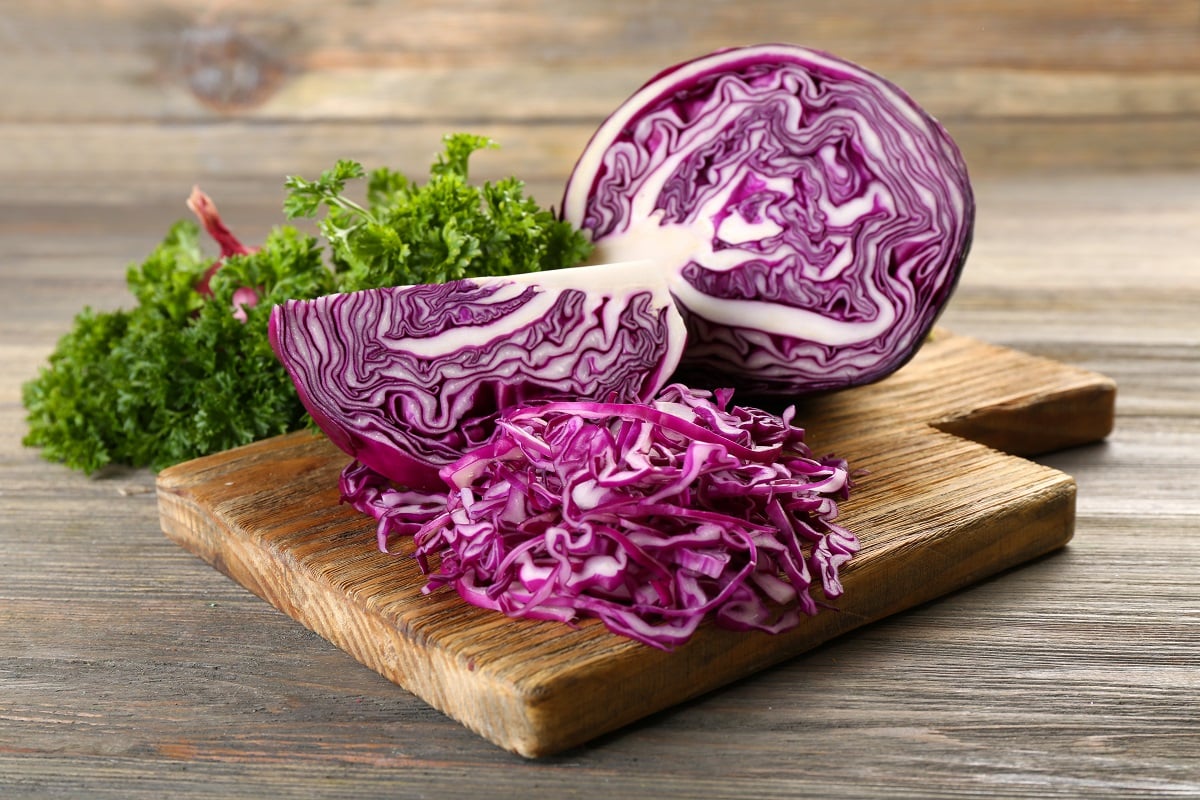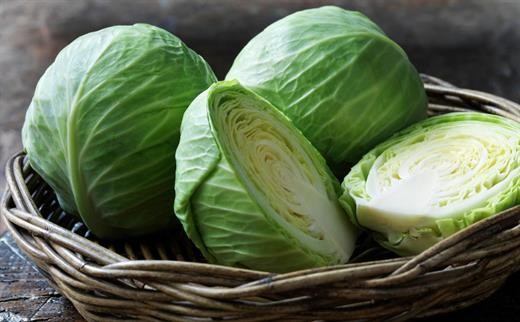This inexpensive vegetable is abundant in the market, but it’s excellent for cancer prevention.

Cabbage is a commonly found and affordable vegetable, yet it has a remarkable ability to prevent cancer effectively. Despite its low cost, cabbage contains a large amount of antioxidants, anti-inflammatory compounds, along with abundant vitamins C and K, making it effective in preventing cancer development.
In traditional medicine, cabbage is considered sweet-tasting, cool in nature, and non-toxic. Apart from being used as a vegetable, cabbage is also used in herbal remedies to treat urinary conditions, clear heat, detoxify, tonify the stomach, and cool the stomach.
According to modern medical studies, cabbage is a nutrient-rich vegetable beneficial for health. In 100 grams of cabbage, there are 50 calories, 5.6% carbohydrates, 1.6% fiber, 31% phosphorus, 4.8% calcium, and 1.4% protein. Cabbage also contains high levels of vitamins A and C.
In Vietnam, cabbage is imported from Europe and widely used in various easily digestible dishes that suit the taste of the majority of people.
Compared to other vegetables, cabbage is affordable but nutritionally valuable. While most vegetables have low protein content, cabbage has relatively high protein content, although slightly lower than spinach.
Cabbage, rich in vitamins, helps boost the immune system and provides low-calorie energy, aiding in weight loss. Nutrition experts recommend consuming cabbage 2-3 times a week.
For cancer prevention, some studies indicate that cabbage contains numerous antioxidants that eliminate harmful free radicals, reducing inflammation and preventing cancer.
According to VnExpress citing Everyday Health, a study from Concepción University in Chile reveals that cabbage contains a variety of nutrients suitable for an anti-cancer diet.
This vegetable has a high vitamin C content, preventing the development of various cancers such as lung cancer, breast cancer, and pancreatic cancer. Vitamin C is associated with preventing, inhibiting progression, and treating cancer due to its ability to counteract harmful cells.
Scientists from Sun Yat-sen University in China point out that consuming many cruciferous vegetables like cabbage reduces the risk of breast cancer.
The preventive effects against breast cancer from consuming cruciferous vegetables apply to both premenopausal and postmenopausal women. The reason is the biological active components in cruciferous vegetables, glucosinolates (GSL), and isothiocyanate (ITC), which have anti-inflammatory properties.
Note: While cabbage is good for health, individuals with goiter due to iodine deficiency or those with chronic Hashimoto’s thyroiditis may experience larger goiters or thyroid dysfunction if they consume excessive cabbage. Additionally, it’s advisable to cook cabbage thoroughly.
Cabbage is rich in dietary fiber, aiding digestion and preventing constipation. However, individuals with diarrhea may worsen their condition if they consume large quantities of this vegetable, making it more challenging to treat.
When purchasing cabbage, ensure it is food-safe. Cabbage is often treated with pesticides during cultivation, so it’s recommended to limit consumption of off-season cabbage.